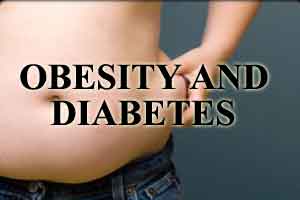- Home
- Editorial
- News
- Practice Guidelines
- Anesthesiology Guidelines
- Cancer Guidelines
- Cardiac Sciences Guidelines
- Critical Care Guidelines
- Dentistry Guidelines
- Dermatology Guidelines
- Diabetes and Endo Guidelines
- Diagnostics Guidelines
- ENT Guidelines
- Featured Practice Guidelines
- Gastroenterology Guidelines
- Geriatrics Guidelines
- Medicine Guidelines
- Nephrology Guidelines
- Neurosciences Guidelines
- Obs and Gynae Guidelines
- Ophthalmology Guidelines
- Orthopaedics Guidelines
- Paediatrics Guidelines
- Psychiatry Guidelines
- Pulmonology Guidelines
- Radiology Guidelines
- Surgery Guidelines
- Urology Guidelines
Obesity Management in Type 2 Diabetes - ADA Guideline 2016

There is strong and consistent evidence that obesity management can delay progression from prediabetes to type 2 diabetes and may be beneficial in the treatment of type 2 diabetes. In overweight and obese patients with type 2 diabetes, modest and sustained weight loss has been shown to improve glycemic control and to reduce the need for glucose-lowering medications . Small studies have demonstrated that in obese patients with type 2 diabetes more extreme dietary energy restriction with very low-calorie diets can reduce A1C to ,6.5% (48 mmol/mol) and fasting glucose to ,126 mg/dL (7.0 mmol/L) in the absence of pharmacological therapy or ongoing procedures . Weight loss–induced improvements in glycemia are most likely to occur early in the natural history of type 2 diabetes when obesity associated insulin resistance has caused reversible b-cell dysfunction but insulin secretory capacity remains relatively preserved .
In the year 2016 American Diabetes Association came out with an guidelines on Obesity Management in Diabetes
The Guideline Recommendations divided were primarily divided under two subsection
- Assessment
- Intervention Strategies
ASSESSMENT
- At each patient encounter, BMI should be calculated and documented in the medical record.
At each routine patient encounter, BMI should be calculated from the height and weight. BMI should be classified to determine the presence of overweight or obesity, discussed with the patient, and documented in the patient record. ). Providers should advise overweight and obese patients that higher BMIs increase the risk of cardiovascular disease and all-cause mortality. Providers should assess each patient’s readiness to achieve weight loss and jointly determine weight loss goals and intervention strategies.
Strategies: These include A.diet, physical activity, behavioral therapy, B.pharmacological therapy, and C. bariatric surgery . The latter two strategies may be prescribed for carefully selected patients as adjuncts to diet, physical activity, and behavioral therapy.
Intervention Strategies Include
DIET, PHYSICAL ACTIVITY, BEHAVIOURAL THERAPY:
- Diet, physical activity, and behavioral therapy designed to achieve 5% weight loss should be prescribed for overweight and obese patients with type 2 diabetes ready to achieve weight loss.
- Such interventions should be high intensity ($16 sessions in 6 months) and focus on diet, physical activity, and behavioral strategies to achieve a 500–750 kcal/day energy deficit.
- Diets that provide the same caloric restriction but differ in protein, carbohydrate, and fat content are equally effective in achieving weight loss.
- For patients who achieve short-term weight loss goals, long-term ($1-year) comprehensive weight maintenance programs should be prescribed. Such programs should provide at least monthly contact and encourage ongoing monitoring of body weight (weekly or more frequently), continued consumption of a reduced calorie diet, and participation in high levels of physical activity (200–300 min/week).
- To achieve weight loss of .5%, short-term (3-month) high-intensity lifestyle interventions that use very low-calorie diets (#800 kcal/day) and total meal replacements may be prescribed for carefully selected patients by trained practitioners in medical care settings with close medical monitoring. To maintain weight loss, such programs must incorporate long-term comprehensive weight maintenance counseling.
PHARMACOTHERAPY
Recommendation
- When choosing glucose-lowering medications for overweight or obese patients with type 2 diabetes, consider their effect on weight.
- Whenever possible, minimize the medications for co morbid conditions that are associated with weight gain.
- Weight loss medications may be effective as adjuncts to diet, physical activity, and behavioral counseling for selected patients with type 2 diabetes and BMI$27 kg/m2 . Potential benefits must be weighed against the potential risks of the medications.
- If a patient’s response to weight loss medications is ,5% after 3 months or if there are any safety or tolerability issues at any time, the medication should be discontinued and alternative medications or treatment approaches should be considered.
BARIATRIC SURGERY
Recommendation
- Bariatric surgery may be considered for adults with BMI .35 kg/m2 and type 2 diabetes, especially if diabetes or associated comorbidities are difficult to control with lifestyle and pharmacological therapy.
- Patients with type 2 diabetes who have undergone bariatric surgery need lifelong lifestyle support and annual medical monitoring, at a minimum.
- Although small trials have shown a glycemic benefit of bariatric surgery in patients with type 2 diabetes and BMI 30–35 kg/m2 , there is currently insufficient evidence to generally recommend surgery in patients with BMI #35 kg/m2 .
For more information click on the following link:
http://care.diabetesjournals.org/site/misc/2016-Standards-of-Care.pdf

Disclaimer: This site is primarily intended for healthcare professionals. Any content/information on this website does not replace the advice of medical and/or health professionals and should not be construed as medical/diagnostic advice/endorsement or prescription. Use of this site is subject to our terms of use, privacy policy, advertisement policy. © 2020 Minerva Medical Treatment Pvt Ltd